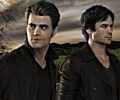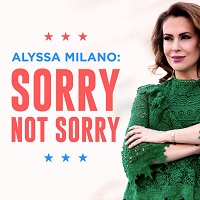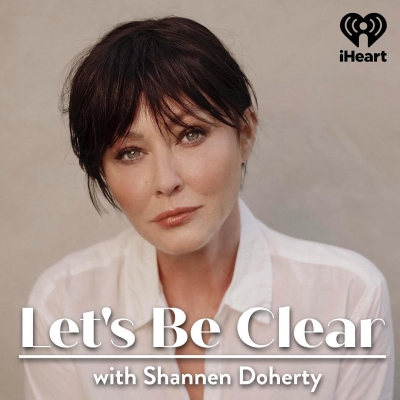Rose heeft een interview gehad met Dazed Magazine.

Galerij Links:
http//: 2018: Dazed Magazine
How Rose McGowan escaped the horror of Hollywood and then set it alight
“We have to look at the origin story and demolish it. The Bible, religion, and Hollywood.”
When she was a professional actor, Rose McGowan says she changed her voice for every role. For Charmed, the WB sitcom about witches that she starred in between 2001 and 2006, she adopts a high-pitched, girlish inflection. In the 1999 dark teen comedy Jawbreaker, she uses a more forthright tone that draws itself out from her chest, with a dash of sarcastic vocal fry.
On the audiobook version of her 2017 memoir Brave, she speaks in what she says is her real voice. It has a deeper resonance than she ever had in the movies, and reverberates with the memory of the traumatic experiences she describes. She tells of her neglectful parents, an abusive boyfriend, and her demeaning early experiences as a teenager in Hollywood. Most notoriously, she claims she was raped by movie producer Harvey Weinstein. (Weinstein has denied any accusations of non-consensual sex.) Occasionally, her voice shatters under the weight of her subject; but mostly, it’s a constant push forward, solid and unrelenting.
By McGowan’s account, the recording was made in a room with publishing representatives and an engineer, all of whom were deeply uncomfortable. She describes it when we meet on a bright March afternoon in a London coffee shop that overlooks the sparkling Thames – and a construction site. (McGowan quips knowingly, “I like beauty with a little brutality.”) I tell her that listening to the book has been an intense and moving experience. It’s often, if I’m honest, too much – but that reaction makes me question where that instinct to call her “too much” may come from. Victims of abuse are often made to feel they should keep their trauma to themselves, for the sake of decorum or comfort – it’s another way we re-victimise people who have suffered.
McGowan, though, has no problem making people uncomfortable in the name of exposing her truth. When the dam of rumours and allegations about Weinstein finally broke in late 2017, McGowan’s loud and unwavering voice was at the forefront of the surge. (She had been publicly hinting about her own story for two years prior.) Adopting the hashtag #ROSEARMY, McGowan stirred her online following into a state of fury. A typical tweet from her in late 2017 read: “You gentlemen don’t seem to know who you are fucking with. I am unfuckable.”
Just this month, she stoked the flames again by posting a video on Twitter in which she wishes Harvey Weinstein a happy birthday, winking demonically at the camera, which is angled up at her face, as though looking at her from the perspective of someone she has pinned to the ground. McGowan’s tone, in the public conversation about sexual assault surrounding the #MeToo movement, has been exactly what it is in Brave: viscerally personal, earth-scorchingly angry, often frightening to witness.
McGowan has been publicly quiet in the weeks leading up to our conversation, though, since she cancelled her book tour in early February. This followed a heated exchange with a trans woman activist named Andi Dier during a reading in a Barnes & Noble store. Dier stood up during the event to ask McGowan about her comments about trans women on RuPaul’s What’s The Tee podcast in 2016 (McGowan said that trans women “assume, because they felt like a woman on the inside, that’s not developing as a woman, that’s not growing as a woman”). Dier asked McGowan, “what have you done for trans women?”
McGowan responded by asking, “what have you done for women?” – a question from which some inferred that McGowan did not believe trans women to be women. McGowan and Dier screamed at one another as Dier was removed from the event by security, with Dier hollering, “white cis feminism”, and McGowan yelling in return, “I didn’t agree to your cis fucking world.”
“When I say women, I mean all women”, McGowan clarifies, still visibly furious when I ask her to address this. “When I say women get raped, I’m including trans women, completely. We should not be separated right now. The time is too real, the struggle is too real. So, to isolate women from each other and make them adversaries is exactly what the patriarchy wants — and exactly what the machine wants.
“At one point, (Dier) yelled at me, ‘what about trans women in prison?’ Like, what? What about bus drivers? I stand for all. I’ve never, ever been exclusionary.”
McGowan believes that Dier was paid to confront her at the event by Weinstein. (His team have previously denied this.) “(Weinstein’s team have) triangulated my biggest sources of support, which was always the queer community, the LGBTQ community, and they’ve really put a wedge in there”, she says. “They’ve done that on purpose. They’ve come after me so hard in the past two years; they do it through slut-shaming, they do it through hacking my computer and photos of me, spreading those all over the internet. Terrorising me with painting me as – I mean, it’s literally so ludicrous to defend myself.”
This allegation may sound extreme to some, but in context it’s not difficult to understand why this is what McGowan believes. Weinstein has demonstrated multiple times that he will go to incredible lengths to control the media narrative surrounding McGowan and her allegations. In 2017, the New Yorker revealed that Weinstein had previously hired ex-Israeli military spies to infiltrate McGowan’s life for an entire year, befriending her in an effort to censor and suppress her memoir. Weinstein’s publicist has also been known to write to publications that have published an account of his alleged assault on McGowan, asking them to add the detail that McGowan faked enjoyment of the act.
McGowan also maintains that Weinstein has persistently blacklisted her and damaged her career in Hollywood since she stopped returning his calls after the assault in 1997. She tells me: “He went to every studio and every independent producer in town and slandered my name repeatedly for years.” (It has been corroborated that Weinstein has deliberately derailed the careers of other actresses.) None of this confirms that Weinstein paid off Dier (who, it also later emerged, has been accused of sexual assault herself). Nor does it excuse the use of rhetoric that excludes or offends trans women. It does, however, shed some light on McGowan’s mindset, dogged by a very real threat of gaslighting and censorship for years, which she has bravely gone against in order to speak out about her own experience of sexual violence.
“I lost myself in doing drag as a woman. Which is what Hollywood does to you. The blowdryer with the three twirls at the end, you know.”
Back in 2001, McGowan says that it was Weinstein’s effort to blacklist her from the movie industry that drove her to accept a role on Charmed. But this job, she says, was the final blow to her already troubled relationship with acting. “The camera and I danced together for a long time, but I would vastly prefer being behind it”, she says. “I kind of lost myself for a while; I lost myself in doing drag as a woman. Which is what Hollywood does to you. The blowdryer with the three twirls at the end, you know.
“Much like being a detective who goes undercover for too long, you can lose yourself, and I, for 12 to 17 hours a day, for five years, was somebody that frankly was not as interesting as my own mind. I felt like my brain was turning to mush.”
One night in 2014, McGowan says, the power went out in her house, and she got really stoned, and realised that she didn’t want to be an actor any more. In fact, she never really had. She realised that she felt victimised by the camera lens. Instead, she wanted to find her own voice.
Stepping behind the camera, McGowan turned her attention to directing with her 20-minute film Dawn, an allegorical story about a young girl groomed by a predator, released in 2015. The 1960s-set film has an uneasy pastel hue, lulling you into a false sense of security like a stranger offering up candy. It works, McGowan says, as “a warning to everybody to show them how predators work and gaslight you.” Her voice darts quickly from point to point with excitement as she recounts how the villain gaslights his victim, Dawn. In the film, when he first gets her alone, he says softly to her, “you’re lonely, huh” – later in the film, in a blink-and-you’ll-miss-it call back, he reiterates, “you’re lonely – you said that.” But Dawn never says so herself. “That’s what they do”, says McGowan – “they” being abusers, Weinstein, Hollywood – “they scramble the mind.”
In Dawn, the entire fictional world works together to trap Dawn with her abuser. The messaging she receives from the media, her family, her religion, her friends – all of it is designed to enable others to take advantage of her, to the point that when she’s in a life-or-death situation, she’s conditioned not to fight for her own survival. One of the most striking moments comes when she reads aloud from a magazine about how she should behave on a date to impress a boy (acquiesce, giggle, don’t be loud or confrontational). Was making this film a way of processing what had happened to McGowan in Hollywood? “Very much so.” Hollywood itself, she says, “is abusive.”
In recent years, McGowan has rebelled more and more against the “cult-like” rules and expectations placed on her as a famous woman. Her February 2018 appearance on the Late Show is a prime example: in a bright orange hoodie, she derailed the staid interview format by discussing Old Testament theology and khaki pants, gesticulating wildly in a performance that Vox labelled “celebrity as Dadaism.”
For McGowan, challenging the generic format of celebrity talk shows is about challenging power structures. “When you glitch their matrix, (people) freak the fuck out,” McGowan smiles. “But it’s okay to freak out, cause then you can reform. I just want people to be 10% more conscious.”
If there’s one thing McGowan despises, it’s complicity – and in its current form, she believes, the whole of Hollywood is complicit in abuse. The day before our meeting, she read of Sharon Stone discrediting one of the women who has accused James Franco of sexual misconduct (“of which I heard a lot about for years in Hollywood”, McGowan adds). It’s made her angry. “Use your goddamn voice”, she says. “If women in Hollywood all came out, it would be such an avalanche. A lot of people say ‘it happens in all industries’. It does. But with Hollywood, what happens behind the scenes, happens on screens, happens to you. It perpetuates that. We have to look at the origin story and demolish it. The Bible, religion, and Hollywood.”
Leaving a cult to speak out against it seems a very lonely position to take, even without the intense scrutiny of McGowan in the media in recent months (including fervent coverage of a drug charge brought against her in November 2017, immediately after she publicly accused Weinstein). In November of this year, McGowan will release Planet 9, an album of spaced-out electro-pop, into which it seems she has channeled her catharsis, in the absence of a support system beyond “a few friends”. She plays me the opening track, a filmic seven-minute odyssey of spoken word titled “Lonely House”. “I was driving one night, and I saw this house very high upon a hill”, she recounts, seeming on the verge of tears not for the only time during our conversation. “One beacon of light…And I just thought, ‘that’s me’. I’ve been by myself for a very long time. ‘Cause if nobody really speaks your language, that’s where you have to live.”
Brave is described in its subtitle as “a how-to”, and so I ask McGowan what her advice is on finding the inner strength to speak out against abusive powers that be. She describes shedding her Hollywood “drag”, and finding her real voice beneath. “Have a look at the tapestry of your life”, she says. “Your life is a piece of carpet. What fibres are yours, and natural? And what fibres are synthetic? The synthetic ones you have to look at. You look at all of it, go through your mind, see what’s yours and what’s not. Pull out the ones that aren’t you; give them back.”







